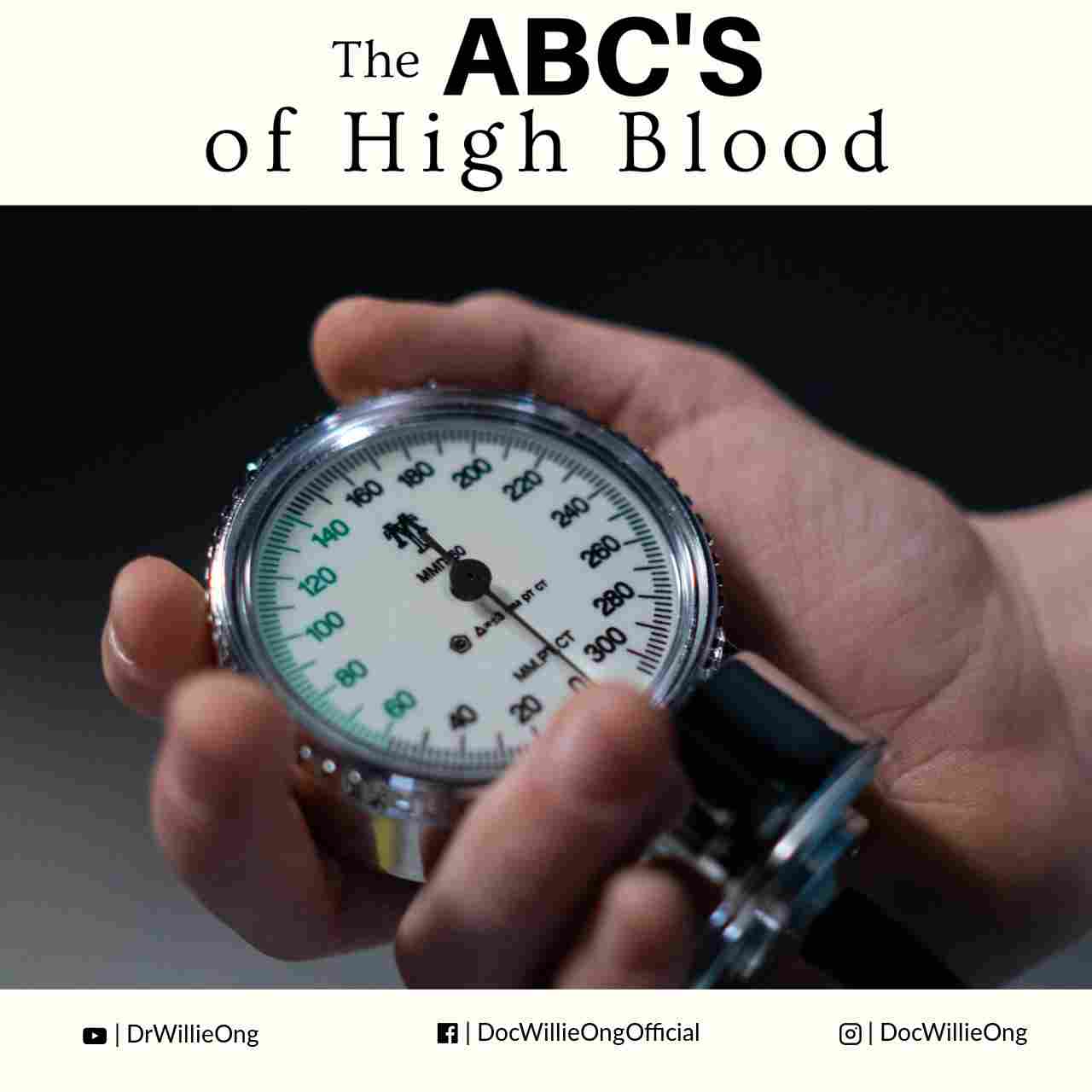By Willie T. Ong, MD
Q. I have had high blood pressure for 10 years. My blood pressure is 170 over 100. I have seen many doctors already but they cannot bring my blood pressure down.
A. Don’t worry, you are not alone. There are approximately 17% of adults suffering from high blood pressure. For the treatment of this condition, there are currently 162 drugs in the market and thousands of combination treatments possible. So what’s the best treatment for you? Well, if you read on, you’ll find that the answer is really as simple as your ABC’s.
Who Has High Blood Pressure?
It is true that an occasional rise in blood pressure (BP), say during heavy exercise or extreme stress, usually does not warrant a label of hypertension. A person is said to be hypertensive if he or she has persistent elevations of BP, which is a systolic blood pressure greater than or equal to 140 mm Hg (millimeters mercury) or a diastolic blood pressure of more than or equal to 90 mm Hg.
For classification purposes, a person has mild hypertension if the systolic BP is between 140 to 159 mm Hg or the diastolic BP is between 90 to 99 mm Hg. These cases may still respond to a change in lifestyle: (a) lose weight and exercise, (b) reduce salt and fat intake and (c) stop smoking and limit alcohol intake.
By contrast, the more serious label of moderate to severe hypertension refers to a systolic BP higher than 160 mm Hg or a diastolic BP greater than 100 mm Hg. These critical elevations of blood pressure make one susceptible to a stroke or a heart attack, hence treatment with medications are needed.
What causes high blood pressure? For 95% of people, there is no specific cause, meaning it is genetic and handed down to you by your parents. Hence, it cannot be cured, only controlled with medications.
What Are The Best Drugs For High Blood Pressure?
The major four classes of drugs used for high blood pressure begins with the letters A, B, C and D.
A stands for ace-inhibitors. Their generic names end with the common syllable “–pril,” for example, Enalapril. Ace-inhibitors are a must for hypertensive patients with diabetes or heart failure. Of course, people’s bodies respond differently and some, around 5-10%, develop side effect of cough.
Should one develop cough, then the angiotensin receptor blockers are good alternatives. The ARB’s, as they are called, end with the syllable “–sartan,” for example, Losartan.
In certain cases, doctors prefer the B’s for beta-blockers. These drugs end with “–olol,” such as metoprolol or atenolol. Why are beta-blockers so popular? Well, in addition to having multiple benefits – treatment of high blood pressure, heart attack, angina, palpitations and migraine – they are also cheap. However, virile middle-aged men fear that it may jeopardize their sexual performance. As one patient says, “Betaloc for me? Betta luck next time, Doc!”
Next, we have the C’s for calcium antagonists. They are the most powerful drugs at the doctor’s disposal, and they usually end with the syllable “–pine.” Calcium antagonists, such as Amlodipine, can reduce very high levels of BP and mind you, won’t affect the men’s sexual prowess.
Last but not least, we have the D’s for diuretics. Surprisingly, recent studies have shown that they may be as beneficial as the more expensive calcium antagonists. Locally, we have Hydrocholorothiazide given at a low-dose 12.5 mg daily (only P5 per tablet). Elderly patients respond well to low doses of diuretics but we just have to watch out for potassium depletion. So if you’re taking diuretics, take two bananas a day just to be safe.
For those who prefer alternative options, there is sambong and raw garlic. However, these have unpredictable and weak results. Hence, I don’t rely on them alone.
How long should one take these drugs? As mentioned, mild cases of high blood pressure may still respond with a change in lifestyle. But for more severe cases, treatment is for life.
But don’t worry, these drugs will really help you live much longer, up to 5-10 years more than the usual lifespan. Trust me, it’s good for you.



